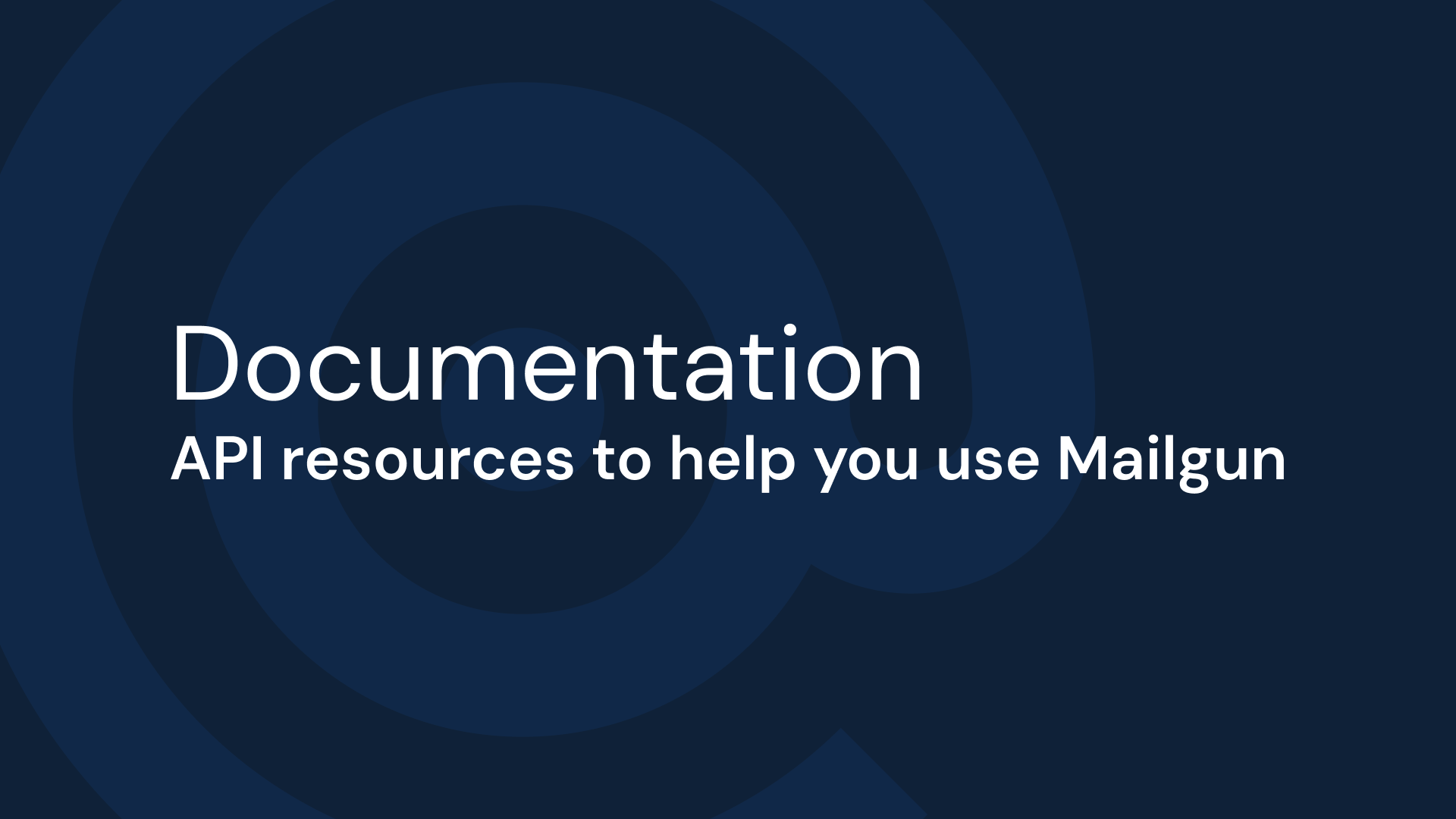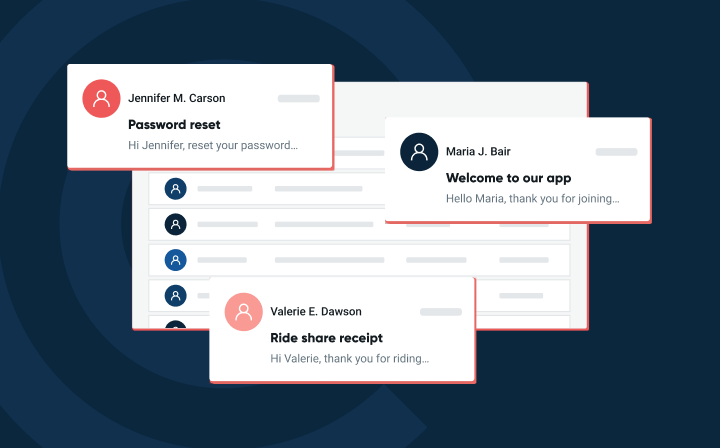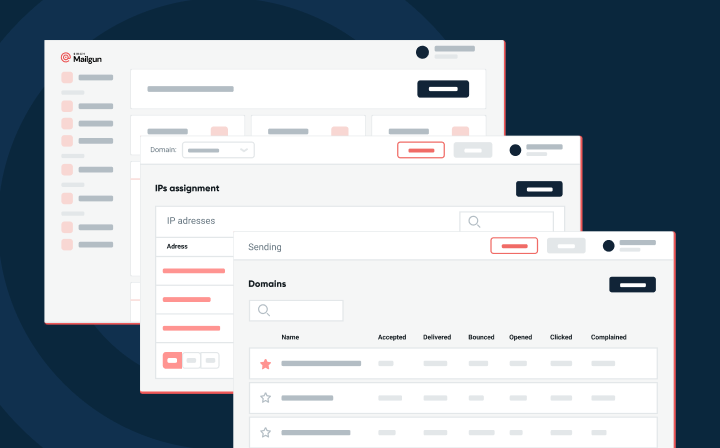The 7 best email verification tools (and why devs choose Mailgun)
Not all email verification tools are built the same—and for developers, speed, accuracy, and seamless integration matter most. We break down the top seven options on the market in this post.
PUBLISHED ON
When it comes to email, deliverability isn’t just a “nice-to-have” it’s mandatory - especially since inbox providers are enforcing stricter requirements. If you’re sending to bad email addresses, you’re risking your sender reputation, delivery rates, and ultimately, your ability to reach subscribers in a meaningful way.
That’s where email verification comes in.
We’ve taken a look at some of the best email verification tools out there and compared features built for marketers, sales teams, and developers alike. Here's what we found.
Table of contents
1. Mailgun: best for developers who care about deliverability
2. ZeroBounce: Best for marketers
3. NeverBounce: Best for large data sets
4. Kickbox: Best for ESP integrations
5. BriteVerify (by Validity): Best for small businesses
6. Emailable: Best budget friendly option
7. MailerCheck: Best for MailerLite users
Table of contents
01What to look for in an email verification tool
What to look for in an email verification tool
Email verification is the process of checking whether an email address is valid and can receive mail – before you hit send. A good tool will go beyond just syntax checks and DNS lookups; it’ll ping the mailbox (without sending a message), flag risky or disposable domains, and help you avoid sending to spam traps or role-based addresses that can hurt deliverability.
Marketers need clean lists to maintain engagement rates and avoid bounces. Developers need real-time verification to prevent invalid signups and deliverability issues or fraud in real-time systems. Martech teams need accurate inputs to power automation, segmentation, and analytics. The best email verification tools serve all of these needs, offering speed, accuracy, and an API-first approach that fits into modern workflows.
The 7 best email verification tools
1. Mailgun: best for developers who care about deliverability
Mailgun’s email verification is baked into the same infrastructure that powers millions of transactional and marketing emails every day. It’s designed for developers who need clean email inputs at scale, not just marketers cleaning up old CSVs.
At its core, Mailgun’s verification engine checks syntax, DNS, MX, and mailbox-level validity. But it goes deeper. It detects disposable email providers, flags role-based addresses (info@, support@), and intelligently identifies risky domains before they hurt your deliverability. Even better, it pings the mailbox without sending an email—so you can confirm inboxes exist in real time without embarrassing misfires.
The RESTful API integrates directly into your app, signup forms, or CRM workflows. With SDKs, webhooks, and clear documentation, it’s the kind of tool you can plug in fast and forget about—until your bounce rate drops and your inbox placement goes up.
Key features:
API-first: Built by and for developers. Fast RESTful API with up-to-date docs and SDKs
Syntax, DNS, and mailbox-level checks: Validates addresses before you send
Role-based address detection: Filters out addresses like info@, support@, etc. that tank engagement
Mailbox ping (without sending): Mailgun verifies inbox existence via SMTP ping, no test emails or awkward misfires
Seamless integration: Mailgun becomes part of your email pipeline with minimal friction
Best for:
Verifying emails programmatically and at scale
Accurate list validation that doesn’t sacrifice speed
Assessing the health of multiple lists in an aggregate view
Vetting and previewing new email addresses before they get on your list
2. ZeroBounce: Best for marketers
ZeroBounce is one of the most feature-heavy tools in the email verification space. From a verification standpoint, it checks syntax, domain, MX records, and mailbox existence. It also identifies abuse, spam trap, and role-based addresses. ZeroBounce is geared toward marketers. Most teams upload CSVs via the dashboard and download results for a great one-off verification option.
Key features:
Offers blacklist checks and abuse detection
Can append data like name/location to email records
User friendly interface with CSV upload
Best for:
One-off email verification
Marketing teams who need quick list validation
3. NeverBounce: Best for large data sets
NeverBounce’s bulk list processing is among the fastest out there, and for teams trying to clean up thousands (or millions) of addresses fast, it delivers. While less feature heavy than some of its competitors, NeverBounce offers a straightforward user interface with streamlined scoring. Each email receives one of 5 scores: Valid, invalid, accept all, unknown and disposable. There’s also an RESTful API for real-time email validation to forms or sign-up flows.
Key features:
Fast validation engine, especially for bulk list cleaning
Good for high-volume marketing ops
Real-time email verification to forms and sign-ups
Best for:
Bulk list verification
4. Kickbox: Best for ESP integrations
Kickbox is one of the more established names in email verification, and it’s often bundled into ESP platforms as a value-add. It handles email verification well: syntax, domain, MX checks, and some mailbox pinging are all included. It even integrates with a decent number of marketing platforms like Mailchimp, ActiveCampaign, and Constant Contact.
Key features:
Solid accuracy
Integrations into ESPs like Mailchimp and ActiveCampaign
Best for:
ESP integration
5. BriteVerify (by Validity): Best for small businesses
BriteVerify was one of the early entrants into the email verification space, with a focus on small-to-medium businesses cleaning up lists manually. Where BriteVerify shines is its no-frills approach. It’s extremely easy to use if you’re dragging and dropping lists into a web app. BriteVerify handles the nuts and bolts of email verification well with syntax, domain, MX, and mailbox checks.
Key features:
Drag-and-drop UI for list cleaning
Good for manual, small-batch jobs
Best for:
Small-to-medium businesses
6. Emailable: Best budget friendly option
Emailable is positioned as the budget-friendly choice in the email verification world. It delivers basic email validation with pay-as-you-go pricing that’s well suited for one-off verification or small businesses with lighter verification needs. Emailable checks syntax, domain, MX, and SMTP. The platform also offers role-based detection and catch-all domain handling, for a straightforward solution to email hygiene.
Key features:
Competitive pricing for startups and small businesses
Role-based detection and catch-all domain handling
Best for:
Start-ups and small businesses
7. MailerCheck: Best for MailerLite users
MailerCheck is a newer tool developed by the folks behind MailerLite, a lightweight email marketing platform. It offers an easy-to-use interface and handles common email verification steps like syntax checking, domain validation, MX records, and some mailbox pinging. It’s geared toward small businesses and marketing teams using MailerLite, so while it functions as a standalone tool, it’s also part of a broader ecosystem.
Key features:
Created by MailerLite and ties into their email platform
Great for small lists who need straightforward email hygiene
Best for:
MailerLite users
Go with the tool built for real email infrastructure
There are a lot of email verification tools on the market—but most of them are designed for marketers and not developers who want a more robust and app-based infrastructure. Verification isn’t just about checking an address—it’s about preserving deliverability, building smarter systems, and sending email with confidence. If you're looking for the best email verification tool to plug into your architecture, support high-volume usage, and integrate deeply with your email infrastructure, Mailgun wins hands down (admittedly we’re a bit biased).
Want to keep your lists clean, your bounce rates low, and your emails landing where they should? Start verifying with Mailgun.







